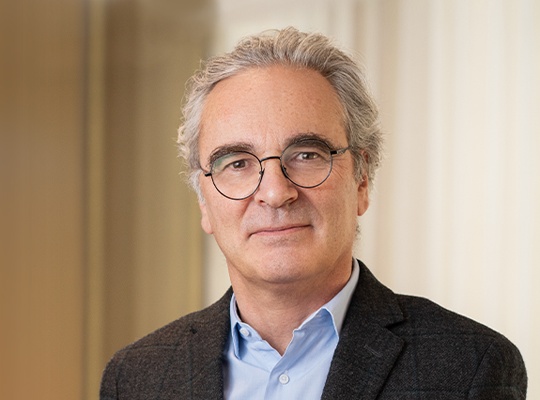Newsletter on health, safety and working conditions – France | First semester 2024
- Teleworking on the recommendation of the occupational health doctor: home occupation compensation is due (CA Paris, December 21, 2023, n°20/05912)
An employee, who worked from home on the recommendation of the occupational health doctor, was dismissed and claimed home occupation compensation.
The French industrial tribunal ordered the employer to pay him this compensation, a decision which the employer contested before the Court of Appeal, arguing that the employee could not claim such compensation since an office was made available to him on the company's premises.
The Court of Appeal was not convinced by this argument. It considered that teleworking, introduced on the recommendation of the occupational health doctor, was essential to protect the employee's health at work. Consequently, the costs associated with this mode of working should not be borne by the employee, but by the employer. The employee is therefore entitled to a home occupation allowance.
- Lunch breaks may be requalified as effective working time (Cass. soc., February 7, 2024, n°22-22.308)
An employee applied to the courts for her lunch breaks to be requalified as effective working time, since during these periods she had to greet customers by phone and in person.
The Court of Appeal rejected her claim, arguing that she had not provided sufficient evidence that she had worked overtime. The employee appealed this decision.
The French Supreme Court ruled in her favor. It confirmed that if, during her lunch break, the employee does not cease her activity and is not able to freely go about her personal business, these periods must be considered as effective working time and remunerated accordingly.
- An accident involving an employee clearing snow from a vehicle parked on a public highway on his way to work is a commuting accident (Cass. civ. 2nd, February 29, 2024, n°22-14.592).
An employee fell while clearing snow from his vehicle parked on a public highway on his way to work. The health care insurance fund refused to cover the accident as a commuting accident, which the employee contested in court.
The Court of Appeal accepted the employee’s claim, a decision upheld by the French Supreme Court. The judges noted that the fall occurred outside the victim's home, that the time of the accident was compatible with the precautions taken to anticipate traffic difficulties, and that the victim had not interrupted or diverted his journey between home and work for a personal reason. In other words, at the time of the accident, the victim had left his home and was on his way to work, which qualifies the accident as a commuting accident.
- Travelling time during which the employee remains reachable is not necessarily effective working time (Cass. soc., March 13, 2024, n°22-11.708)
An employee asked for his business travel time to be reclassified as effective working time, arguing that during these trips he remained reachable for his colleagues, both abroad and on the road.
The Court of Appeal agreed, finding that he remained permanently at his employer's disposal.
The French Supreme Court disagreed. It considered that it had not been established that, during his travels, the employee had to remain at the employer's disposal and comply with his instructions, without being able to pursue his personal occupations. The mere fact that the employee remains reachable is therefore not sufficient to qualify travel time as effective working time.
- The employee's reasonable belief must be taken into account when assessing the legitimacy of exercising the right of withdrawal (Cass. civ. 2nd, March 27, 2024, n°22-20.649)
A steward exercised his right of withdrawal before a flight to Israel, at a time when the armed conflict between Israel and Gaza had escalated again in the weeks prior. The employer deemed this exercise unjustified and withheld his salary.
The employee contested this measure before the urgent application judge, who ordered the employer to restore the pay he had been deprived of. The steward then appealed to the French industrial tribunal for damages to compensate for his moral prejudice.
The Court of Appeal rejected his claim, ruling that he could not rely on a serious and imminent danger to his life or health, as such a situation had not been characterized and the employer had taken sufficient safety measures.
The French Supreme Court rejects this reasoning. It states that the exercise of the right of withdrawal is justified when the employee has reasonable cause to believe that his work situation presents a serious and imminent danger to his life or health. Whether or not the danger objectively exists, and the safety measures taken by the employer, are irrelevant. The Court of Appeal should therefore have taken the employee's subjective assessment of the danger into account, rather than limiting itself to an objective evaluation of the situation.
- Physical activity during sick leave must be authorized by a doctor in advance (Cass. civ. 2nd, May 16, 2024, n°22-14.402)
The health care insurance fund notified an insured person of an undue payment with respect daily allowances received during a period of sick leave, due to unauthorized physical activity. The policyholder appealed to the social division of the judicial court.
The court ruled in the policyholder’s favor, stating that medical certificates drawn up after a sick leave justified the practice of physical activity for therapeutic purposes.
The health care insurance fund then appealed to the French Supreme Court, arguing that express prior authorization to engage in an activity could not be derived from an attestation drawn up after the fact.
The French Supreme Court upheld this reasoning. It points out that daily social security compensation is subject to the policyholder’s obligation to refrain from any activity not expressly authorized in advance by the prescribing doctor.
- Work-related accident and inexcusable fault can be proven by a recording obtained unfairly (Cass. civ. 2nd, June 6, 2024, n°22-14.402)
An employee claims to have suffered a work-related accident as a result of verbal and physical violence committed by the manager of the company employing him. The health care insurance fund recognized this as an occupational accident, but the employer contested this in court, arguing that the violence had not occurred at the workplace or during working hours. The employee, for his part, brought an action before the social section of the judicial court to have his employer's inexcusable fault recognized, producing as evidence a transcript of an audio recording of the altercation made without the manager's knowledge.
Based on this recording, the Court of Appeal recognized the occupational accident and the employer's inexcusable fault.
The employer appealed to the French Supreme Court, arguing that the recording constituted an unfair procedure, making it inadmissible in court.
The French Supreme Court was not convinced by this reasoning and agreed with the Court of Appeal's decision to admit the recording as evidence. It points out that evidence obtained or produced in an unfair or illicit manner is not necessarily excluded from the proceedings. It may be admitted if it is essential to the exercise of one of the parties' right to evidence, and if the invasion of the other party's privacy is proportionate to the aim pursued, which was the case here.
Related Professionals
Related Services



